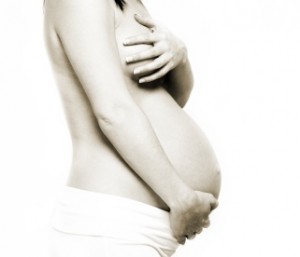 If there’s anything we’ve learned here at Growing Your Baby, it’s that babies will come when (and where) they are ready, no matter what their due date is. An when it comes to due dates – only about 4 percent of mothers deliver on their due dates, and approximately 70 percent deliver within ten days of it. But the other 30 percent don’t fall anywhere close. Why is that, exactly?
If there’s anything we’ve learned here at Growing Your Baby, it’s that babies will come when (and where) they are ready, no matter what their due date is. An when it comes to due dates – only about 4 percent of mothers deliver on their due dates, and approximately 70 percent deliver within ten days of it. But the other 30 percent don’t fall anywhere close. Why is that, exactly?
In some cases, babies are simply born prematurely. But in healthy, full-term pregnancies, it’s always been assumed that a misjudgment in conception date is responsible for the variation in pregnancy duration. But that may not be true, a new study has indicated. In fact, it would seem that the reasoning behind varied gestation times may be even more of a mystery than previously realized.
The Human Reproduction published study looked at the duration of 125 single-birth pregnancies that took place between 1982 and 1985. All of the mothers were healthy, with no problems of infertility, and had conceived naturally. Daily urine samples were collected up until the eight week of their pregnancy, and they were asked to keep daily diaries.
In the collected urine samples, the research team looked for three specific hormones – hCG (human chorionic gonadotropin), estrone-3-glucoronide and pregnanediol-3-glucoronide – all three of which are connected with pregnancy. They used the changes in hormone levels to determine the exact time of ovulation, which was determined through a drop in the ratio between estrogen and progesterone hormones, and the exact day that the fertilized embryo implanted itself in the womb, which was identified as the first day of hCG hormone increase.
In 2010, years after collecting the samples, researchers connected back with the women to find out when they went into labor and if they were induced or ended up needing a C-section. Interestingly enough, the researchers learned that the average time from ovulation to birth was 268 days, or 38 weeks and 2 days. However, the pregnancy times from one woman to the next varied greatly from the average.
After excluding six babies born prematurely, researchers found that pregnancy duration varied from one woman to the next as much as 37 days. Some factors were found to influence pregnancy duration – age of the mother, birth weight of the mother and longer pregnancies in the past. But the biggest, most intriguing variation had to do with late rises in hormone levels, particularly hCG – the hormone that marked when the embryo implanted into the uterus – and progesterone.
“We were a bit surprised by this finding,” Dr. Anne Marie Jukic, a postdoctoral fellow in the Epidemiology Branch at the National Institute of Environmental Health Sciences (Durham, USA), which is part of the National Institutes for Health, said in a press release. “We know that length of gestation varies among some women, but some part of that variation has always been attributed to erros in the assignment of gestational age. Our measure of length of gestation does not include these sources of error, and yet there is still five weeks of variability. It’s fascinating.”
Of course, they’re not much closer to understanding why these factors influence gestation time, but the research does provide a base for scientists to expand on.
“I am intrigued by the observation that events that occur very early in pregnancy, weeks before a woman even knows she is pregnant, are related to the timing of birth, which occurs months later. I think this suggests that events in early pregnancy may provide a novel pathway for investigating birth outcomes.”
It also just goes to show that, as long as your baby is healthy, you’ll just have to rest assured that your baby will come when he or she is ready. And hopefully, with that knowledge, you’ll have a little less anxiety about your baby’s pre-determined “due date.”
Related Articles:
- Spanish Baby Tips The Scales at 13lbs 7ozs!
- Rockford Family Welcomes 12th Baby BOY!
- In Utero Procedure Saves Life of Austin Baby Suffering from Rare and Fatal Condition






